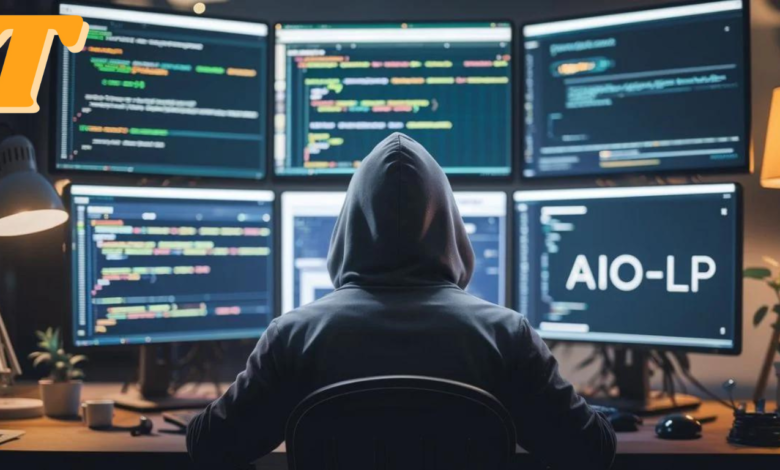Navigating the Aftermath How to Protect Yourself After thejavasea.me Leaks AIO-TLP

The digital age has brought incredible convenience, but it also comes with its own set of risks. Recently, thejavasea.me leaks AIO-TLP sent shockwaves through various online communities. Sensitive information from countless users is now exposed, leaving many feeling vulnerable and anxious about their personal security. If you’re among those affected or simply want to safeguard yourself against potential threats, it’s crucial to understand what happened and how you can protect your data moving forward. Let’s delve into the aftermath of this alarming incident and explore actionable steps to secure your personal information effectively.
How the Data Leak Occurred: Background and Explanation
Thejavasea.me leaks AIO-TLP stem from a significant security lapse. Hackers exploited vulnerabilities in the website’s infrastructure, gaining access to sensitive information.
An outdated software version played a critical role in this breach. Despite warnings and updates available, the site failed to implement necessary changes. This negligence allowed cybercriminals easy entry into their systems.
Once inside, the attackers exfiltrated large volumes of personal data. User credentials, transaction histories, and even private messages were compromised.
The aftermath has been chaotic for many users, as trust quickly erodes when such incidents occur. It serves as a stark reminder of how essential robust cybersecurity measures are today.
Understanding the Potential Risks of the Data Leak
The recent thejavasea.me leaks AIO-TLP raise significant concerns about personal security. When sensitive data is exposed, it opens a door for cybercriminals.
Individuals may find their private information misused in alarming ways. This includes identity theft, where thieves can impersonate victims to access bank accounts or open new credit lines.
Moreover, compromised emails might lead to phishing attacks. Hackers could craft convincing messages that lure unsuspecting individuals into revealing more information.
Businesses are not immune either. Client databases and internal communications can be exploited by competitors or malicious actors aiming to cause reputational damage.
Staying informed about these risks is crucial as the fallout from such leaks continues to evolve. Awareness helps in taking proactive measures against potential threats lurking in the digital shadows.
Steps to Take for Protecting Your Personal Information
Protecting your personal information after thejavasea.me leaks AIO-TLP is crucial. Start by changing your passwords immediately. Use strong, unique passwords for each account and consider a password manager to keep track of them.
Enable two-factor authentication wherever possible. This adds an extra layer of security that can significantly reduce the risk of unauthorized access.
Monitor your financial statements closely. Look for any suspicious transactions or activities that don’t seem right. Report anything unusual to your bank promptly.
Consider placing a fraud alert on your credit report. This informs creditors to take extra steps in verifying identity before opening new accounts in your name.
Stay vigilant against phishing attempts. Be cautious with emails or messages requesting sensitive information, even if they appear legitimate. Always verify the source before responding or clicking on links.
Legal Action Options for Those Affected by the Data Leak
If you find yourself impacted by thejavasea.me leaks AIO-TLP, exploring legal action could be a viable option. Understanding your rights is crucial.
First, consider consulting with an attorney who specializes in data breaches and identity theft. They can provide personalized guidance based on your situation.
You might have grounds for a class-action lawsuit if numerous individuals are affected. This approach allows victims to band together, sharing resources and strengthening their case against the responsible parties.
Filing complaints with relevant authorities like the Federal Trade Commission (FTC) can also be effective. Reporting the breach helps establish a record that may support future legal claims.
Remember to document all communications related to the leak and any damages incurred. Keeping thorough records will bolster your position should you decide to pursue litigation or other forms of recourse later on.
Tips for Preventing Future Data Leaks and Identity Theft
Protecting yourself from future data leaks and identity theft requires proactive measures. Start by using strong, unique passwords for each account. Consider a password manager to help keep track of them.
Enable two-factor authentication wherever possible. This adds an extra layer of security that can thwart unauthorized access.
Be cautious about sharing personal information online. Limit what you post on social media and adjust privacy settings to safeguard your data.
Regularly monitor your bank statements and credit reports for suspicious activity. Early detection is key in mitigating potential damage.
Stay informed about the latest cybersecurity threats. Knowledge is power when it comes to protecting your digital footprint against evolving risks.
Conclusion
Navigating the aftermath of thejavasea.me leaks AIO-TLP requires vigilance and proactive measures. Understanding how these data breaches occur empowers individuals to take control over their personal information. The potential risks associated with such leaks can be severe, affecting everything from financial security to personal safety.
Taking immediate steps is crucial for protecting your identity. Monitoring your accounts, changing passwords, and utilizing credit monitoring services are essential actions that should not be overlooked. Moreover, exploring legal options can provide additional support for those affected by this breach.
Preventing future incidents also rests in our hands. Educating ourselves about safe online practices will create a more secure environment for everyone.
The journey after a data leak may feel daunting, but awareness and action pave the way toward safeguarding our identities against further threats. Stay alert and stay protected; it’s vital now more than ever.




